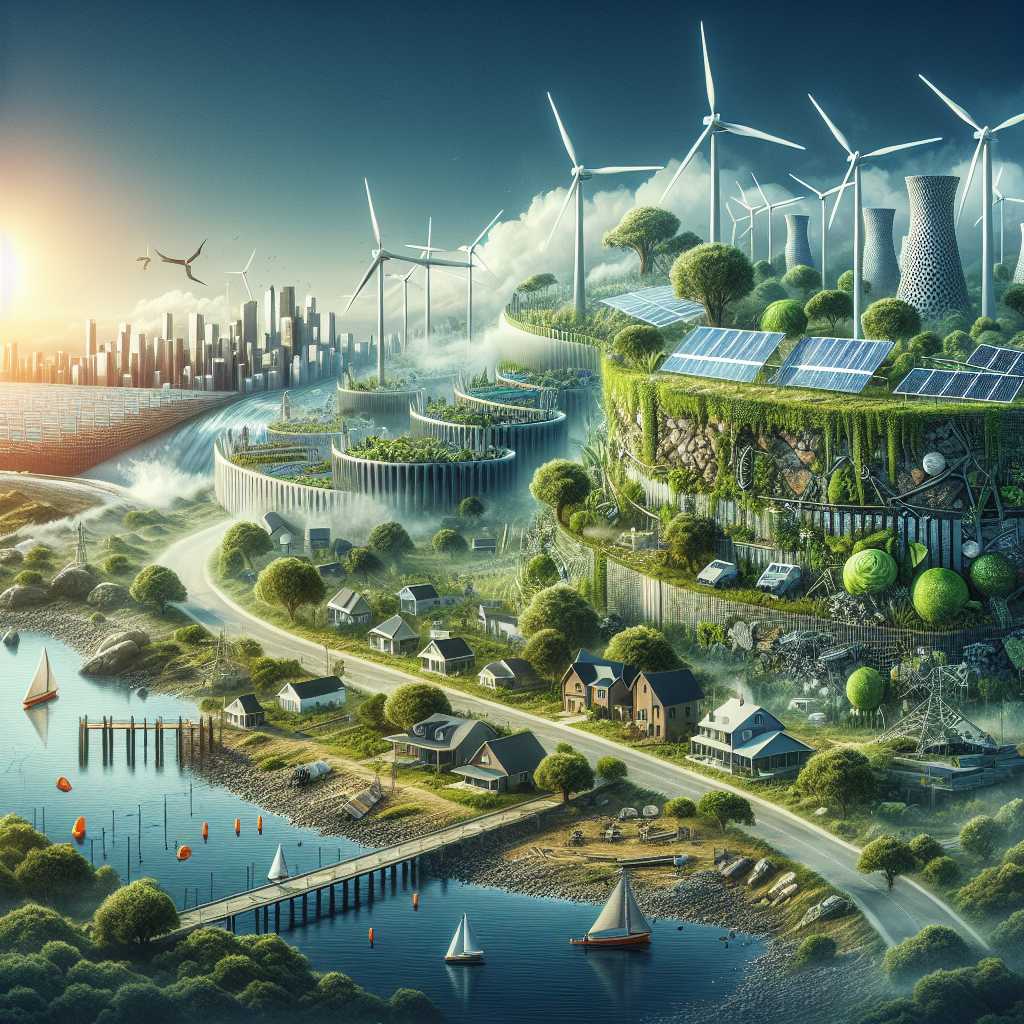The United States stands at a pivotal junction in its battle against climate change, facing a future charged with escalating threats as the latest National Climate Assessment lays bare the stark reality of our warming planet. The comprehensive government report, authored by near a thousand experts, paints a vivid picture of a nation besieged by hurricanes, droughts, wildfires, and floods, with a staggering annual toll of $150 billion.
Yet, amidst the turbulence, a current of innovation and investment courses through the country. Renewable energy sources, once a fringe player, now surge to the forefront, driving down emissions and reshaping the electric grid. Agricultural practices are reborn, sequestering carbon in the soil, while coastal communities rise – both metaphorically and literally – as homes are elevated, and natural barriers are fortified.
The Biden administration, with the Inflation Reduction Act as its spearhead, ushers in an era of unprecedented investment, promising a bolstered national resilience and a hastened exodus from the clutches of fossil fuels. The White House Office of Science and Technology Policy echoes a note of cautious optimism, as Director Arati Prabhakar calls for redoubled efforts.
The assessment, however, does not shy away from the uncomfortable truth that the climate crisis does not bear down on all shoulders equally. Low-income communities, communities of color, and indigenous populations face the brunt of the impact, their struggle compounded by systemic inequities. As such, bridging these disparities has become not just a matter of justice but a critical piece of the climate solutions puzzle.
The specter of food scarcity, health crises, and mass displacement looms large in potential future scenarios. But the report also offers a beacon of hope, suggesting that the severity of future impacts lies within our collective hands. Aggressive measures could not only avert catastrophe but also usher in ancillary benefits like cleaner air, water, and a boon of new industry jobs.
States, communities, and the private sector are now joining the fray, with stories of triumph such as Kauai's renewable energy milestones and Pittsburgh's innovative urban planning. The nation's narrative is one of interconnectedness, with each action rippling across the country and beyond, a testament to the shared fabric of our global climate.
As the country braces for the COP28 climate summit, it confronts the dissonance between current efforts and the ambitious Paris climate agreement goals. With reports indicating a potential 9 percent rise in emissions by 2030 and the U.S. falling short of its targets, President Biden's recent allocation of $6 billion for climate resilience underscores the urgency for robust action.
The U.S. electric grid is set for a $3.9 billion fortification, the EPA is readying $2 billion in grants for carbon-neutral energy adoption, and the Interior Department is investing in the lifeblood of the West – its water resources. Biden's clarion call for escalated efforts against climate change resonates against a backdrop of a nation that must not only face its internal challenges but also address its role on the world stage.
The assessment is a stark reminder that the threat of climate change is not a distant prophecy but a present calamity, with each delay measured in lives lost and futures forfeited. It is a call to arms, a plea for the nation to awaken and act, not with a whisper but with the thunderous urgency that the crisis demands.

